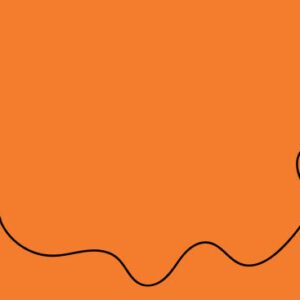Let’s pull back the curtain on one of the most misunderstood elements in all of comedy. I’m talking about something that’s so often overlooked or dismissed, yet it sits at the very heart of what makes people laugh. This, right here, is what I consider to be comedy’s best-kept secret.
Not too long ago, I published an article and shared it on Facebook. It picked up a solid number of comments—some thoughtful, insightful, and encouraging. But mixed in there were a few that were, let’s say, less inspiring. In fact, some of them were so off the mark, they were unintentionally hilarious.
One comment stood out. It read: “What is this? I thought this was supposed to be about comedy. Why is this guy talking about the brain? What does the brain have to do with being funny?!”
And honestly, I wasn’t even surprised. This kind of reaction is common. It reflects an idea that’s been floating around for decades—the belief that comedy is some kind of mystical gift. You either pop out of the womb funny, or you don’t stand a chance. People repeat that notion like it’s written in stone: “Funny can’t be taught.” “You’re either born with it or not.”
But that line of thinking completely ignores the reality right in front of them—facts that can be observed, measured, and even tested. Instead of trying to truly understand what makes something funny, they cross their fingers, walk on stage, talk for a while, and hope someone laughs.
The Real Mystery Isn’t Being Funny—It’s Understanding Why People Laugh
Imagine trying to repair a light switch without knowing anything about how electricity works. You twist a few wires together and hope for the best. That’s basically what many comics are doing when they go up without any real grasp of why humor works.
When you understand what causes laughter on a deeper level, you unlock something special. Sure, not every joke will land—comedy’s never a guaranteed formula—but your hit rate goes way up when you know what you’re doing.
Take George Carlin, for example. He once said that by the time he got up on stage, he was 98% sure that a joke would work. That’s not some lucky streak. That’s a product of understanding and mastery.
If we want to reach that kind of consistency, we have to go beyond instinct. We have to dig into how the mind reacts to comedy.
So What Is the Secret?
Here it is—the big reveal.
Laughter is not random. It’s a psychological response. Our brains are wired to laugh when they encounter one of nine distinct mental triggers. I call these “laughter triggers,” and I explore them in detail in my classes and in my book Breaking Comedy’s DNA.
The most common trigger of them all? Surprise.
No shocker there, right? But surprise is only the surface. What really fuels that response is how our brains build and rely on expectations.
Humans are constantly predicting what’s going to happen next. When we’re caught off guard in a way that’s safe and clever, our brains respond with laughter.
That’s the mechanic behind every punchline. The moment of surprise doesn’t happen in a vacuum—it’s only funny because it breaks a pattern the brain just finished building.
Why Expectation Is Everything
Think about it in terms of sports. Say you’re learning to catch a ball. At first, you’re awful. Why? Because your brain hasn’t developed a mental map for how the ball moves through space. But after some practice, you get the hang of it. You know how fast it travels, how it arcs, how it slows.
Then someone throws a frisbee.
Now that thing doesn’t fly like a ball. It dips, curves, floats, and suddenly reverses. And you’re like, “Wait—what?” Your body’s geared up for one thing, but the frisbee does another.
That reaction, that jolt of unexpected movement? That’s surprise. That’s also comedy.
It’s the same when we talk. Language is full of patterns, and our minds are lightning-fast at predicting where a sentence is headed. If someone says, “I was staying at a hotel in Reno last week. I woke up and the housekeeper was pounding on the door…” your brain already pictures the housekeeper outside trying to come in.
So when the line ends with, “…so I had to get up and let her out,” it completely flips your expectation. That’s the twist. That’s the joke. And your brain rewards that surprise with laughter.
Why This Works Over and Over Again
Here’s the powerful part—this stuff works because the brain can’t handle two opposing outcomes at once. You can’t expect one ending and simultaneously expect the opposite. So when the ending arrives and it’s not what you predicted, the result is almost involuntary: you laugh.
And this is just one basic form of misdirection. There are so many more ways to break expectations—through irony, wordplay, exaggeration, or contradiction. When used effectively, these techniques all tap into that same core brain response.
So the next time someone shrugs and says, “What does the brain have to do with being funny?” you can confidently say, “Everything, actually.”
Comedy isn’t some mystical power granted to a chosen few. It’s a craft built on patterns, psychology, and insight. And when you start to learn how laughter actually works, you stop hoping you’ll be funny—and start knowing how to be.










